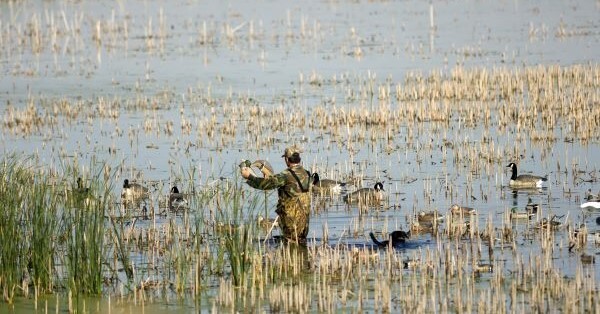MDNR report

Michigan DNR officials are reminding waterfowl hunters to take precautions to protect themselves and domestic animals from highly pathogenic avian influenza, commonly known as bird flu. This fall, the Michigan Department of Agriculture and Rural Development has reported increasing outbreaks of HPAI in commercial and backyard poultry flocks, including new detections in counties with popular waterfowl hunting destinations.
The DNR reports more HPAI detections in 2025 than were found in 2024; 130 wild birds have tested positive for HPAI in Michigan, with most detections in Canada geese, bald eagles and red-tailed hawks. Wildlife detections and pending cases are posted on the DNR’s HPAI webpage.
The disease has been found in every Michigan watershed, indicating that it has occurred throughout the state.
HPAI has been detected in surrounding states and other parts of the U.S. as well. Hunters traveling out of state are advised to follow all health and safety precautions regardless of where they are hunting. Visit the USDA H5N1 Influenza webpage for more information about national detections and response.
Michigan’s earliest waterfowl season opened Sept. 1 and the final season closes Feb. 15. Learn more at Michigan.gov/Waterfowl.
“Make sure to take appropriate precautions when field dressing wild birds. In order to kill the virus, use a food thermometer to ensure that meat is cooked to an internal temperature of 165 degrees Fahrenheit,” said Dr. Scott Larsen, DNR wildlife veterinarian. “It’s also important to properly clean and disinfect gear and equipment before coming into contact with domestic birds.”
HPAI is a highly contagious respiratory disease that causes sickness and sometimes death in wild birds and mammals. HPAI infections can occur at any time of the year, but upticks are expected during spring and fall waterfowl migrations. Wild birds can carry HPAI without appearing sick.
Anyone who observes a die-off of six or more wild birds should report it through the DNR Eyes in the Field online tool or a local DNR field office.
Precautions for waterfowl hunters
The risk of HPAI infecting people is low, but the virus can spread through direct contact with infected animals or material. Hunters should always take precautions when handling wild birds to avoid contracting or spreading bird flu:
For more information about HPAI and human health, visit the Michigan Department of Health and Human Services webpage for Communicable Disease Information and Resources or the Centers for Disease Control and Prevention webpage for Avian Flu




